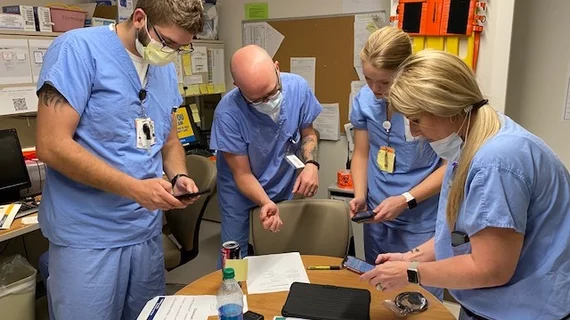AI researchers hope to ID healthcare workers with COVID-19 before they show symptoms
Researchers from West Virginia University (WVU) have launched a new study aimed at identifying healthcare workers infected with the new coronavirus before they become symptomatic. The project is a collaboration between WVU and Oura Health, a smart-ring technology company that specializes in tracking the sleep and daily activities of its users.
The team is using an advanced AI model and Oura Health’s wearable ring technology to track physicians, nurses and other healthcare providers throughout West Virginia. Data is also being gathered from healthcare workers exposed to COVID-19 in U.S. cities such as New York City and Philadelphia.
The goal is to ultimately detect when providers are infected with the virus as quickly as possible, limiting their ability to potentially spread COVID-19 to their colleagues, patients and loved ones back home.
“We are continuously monitoring the mind-body connectivity through our integrated neuroscience platform measuring the autonomic nervous system, fatigue, anxiety, circadian rhythms, and other human resilience and recovery functions,” Ali Rezai, MD, executive chair of the WVU Rockefeller Neuroscience Institute, said in a prepared statement. “Our AI-driven models are currently predicting symptoms 24 hours prior to onset, and we are working toward a three-plus day forecast. This forecasting capability will help us get ahead of this pandemic; limit the spread to protect healthcare workers, their families, and our communities; and improve our understanding of health recovery.”
“At Oura, we’ve heard firsthand from our users how the physiological signals tracked by the ring have predicted the onset of the virus before other symptoms manifest,” Harpreet Rai, CEO of Oura Health, said in the same statement. “We’re grateful we can apply this knowledge to help vulnerable caregivers swiftly identify the earliest signs of the disease, and take the appropriate protective measures to limit its spread.”

